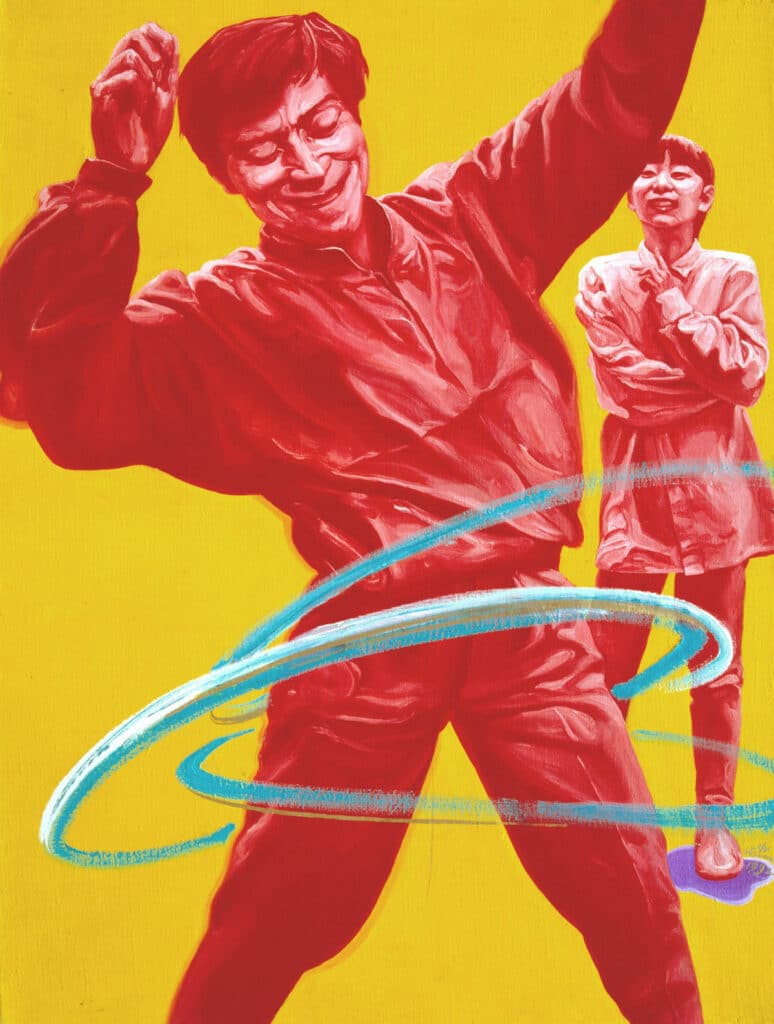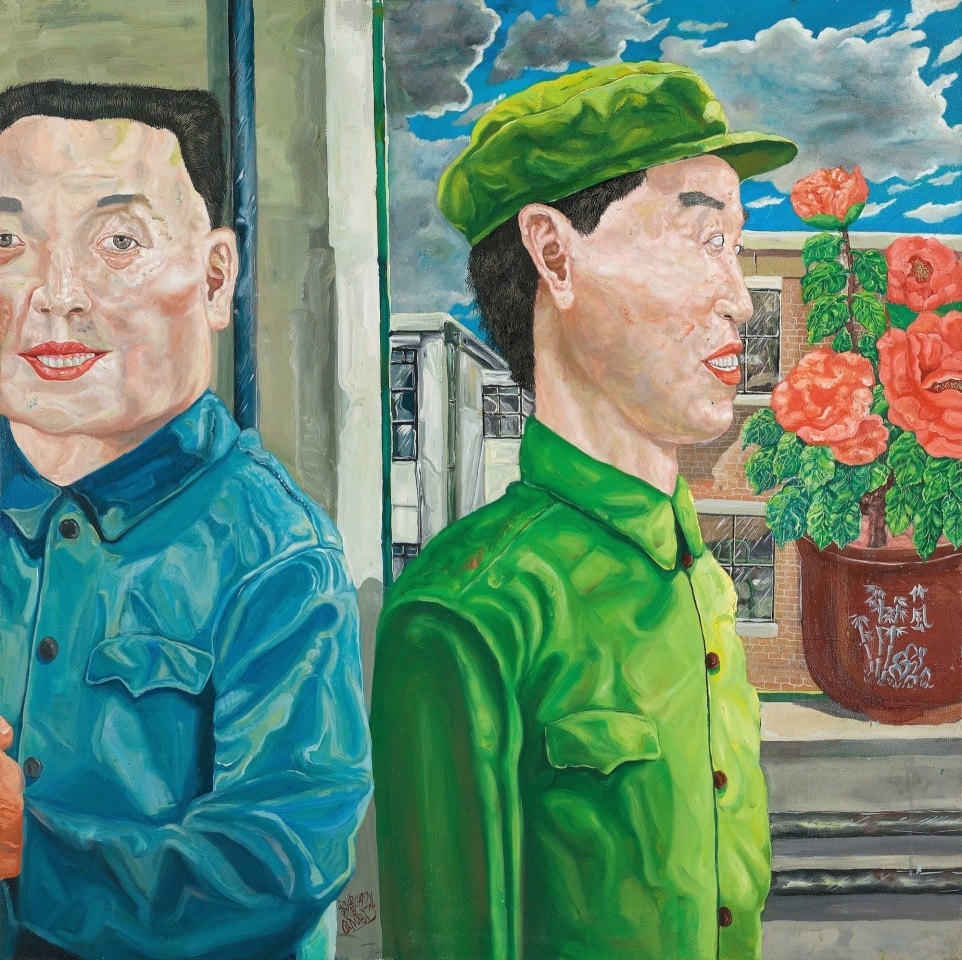Dear friends,
Greetings from the desk of Tricontinental: Institute for Social Research.
In his first month back in the White House, U.S. President Donald Trump indicated his interest in annexing Greenland and brokering a peace deal for Ukraine that would include access to Ukrainian minerals and metals. It is important to note that Greenland has already been a point of contention around its vast holdings of rare earth minerals with such remarkable names as dysprosium, neodymium, scandium, and yttrium (there are seventeen rare earth minerals that are central to any advanced technology). Given that Greenland is part of Denmark, it is therefore beholden to European Union (EU) rules. In 2011, the EU published a list of critical raw materials, which included these rare earth minerals. Then, in 2023, the EU passed the Critical Raw Materials Act, which urged domestic production of these critical minerals and metals and their import into the continent. Ukraine, meanwhile, has an enormous trove of rare earth metals (from apatite to zirconium) as well as reserves of lithium and titanium. Trump demanded at least $500 billion of these reserves from Ukraine as payment for the US’s support in the war. ‘I want to have security of rare earth’, Trump told reporters in early February, sounding like a character from the Lord of the Rings.
Currently, both the United States and Europe import almost all of these crucial rare earth metals from China. In late December 2024, in retaliation for the U.S. tightening sanctions and tariffs on China’s technology sector, the Chinese government banned the export of antimony, gallium, and germanium as well as superhard materials (matter with a hardness greater than 40 gigapascals or GPa) to the United States. Under former President Joe Biden, the U.S. had tried to derail China’s developments in artificial intelligence and chipmaking equipment by restricting the export of high-bandwidth memory (HBM) chips to China. China’s ability to squeeze the supply chain has created a crisis in the West, which is precisely why Trump made his remarks about Greenland and Ukraine’s rare earth cache.

Liu Xiaodong (China), Diary of an Empty City No. 2, 2015.
It makes total sense from the U.S. national security position to seek a ceasefire in Ukraine. The U.S. gains nothing from this war, which has become a matter of prestige for Europe’s elites. If Trump can restart relations with Russia, he could use that to leverage rights over minerals and metals in Ukraine as well as to demand control over Greenland’s resources (rather than outright annexation).
But more than anything, if the United States is able to revive relations with Russia, it will seek to weaken the country’s alliance with China. This is the ‘Reverse Kissinger’ strategy: under U.S. President Richard Nixon, National Security Advisor Henry Kissinger pursued an approach in the late 1960s to befriend China in order to isolate the Soviet Union, while Trump’s Reverse Kissinger approach seeks to isolate China by rupturing its links to Russia. On 4 February 2022, China and Russia signed a ‘no limits’ friendship agreement; twenty days later, Russian troops invaded Ukraine, and despite misgivings about this development, China supported the Russians throughout the war. It is, therefore, unlikely that Russia will accede to a Reverse Kissinger strategy, although there are sections of the Russian elite that are eager for a rapprochement with the West.
The United States loses nothing if it enforces a ceasefire in Ukraine. Russia is not a major threat to U.S. control over the world economy. It is merely a commodity exporter, namely of oil, natural gas, and other minerals and metals. The U.S. knows that Russia will not attack it with its nuclear arsenal because that would be suicidal, and the U.S. knows that Russia merely would like a security guarantee that its cities not be threatened by intermediate nuclear weapons held in neighbouring states.
China, however, is seen by the United States as a serious existential threat. In the weeks since Trump began to announce his tariffs and potential annexations, a small Chinese company unveiled an open-source machine learning platform called DeepSeek that significantly outperforms U.S.-based ChatGPT in a number of respects, including technical and mathematical tasks. Concurrently, during the impending ban of the social media platform TikTok, U.S. users abandoned it not for a Western replacement but for China’s Xiaohongshu (or Red Note). Finally, China’s nuclear fusion device Experimental Advanced Superconducting Tokamak (EAST), Physics World wrote, ‘produced a steady-state high-confinement plasma for 1,066 seconds, breaking EAST’s previous 2023 record of 403 seconds’. This last development is an advance for the potential of a fusion power plant, a promise of almost limitless clean energy without significant radioactive waste.

Yu Hong (China), A Man Playing the Hula Hoop, 1992.
These advances are not accidental but a consequence of long-term planning by the Chinese government, led by the Communist Party. Since the 1978 reform era, China has been cautious about allowing foreign capital and industry into the country without benefit for the Chinese economy. That benefit came in the way of technology and science transfer in exchange for market access, a deal that the companies of the Global North—eager for a high-quality workforce and low wages—accepted. The Chinese government funded its higher education systems, provided incentives to private innovation, and used the surplus from exports to build infrastructure. The planned advances enabled China’s industrial sector to improve its productive forces and not rely merely on labour-intensive production or production using old technologies.
By the time President Xi Jinping used the term ‘new quality productive forces’ during a visit to Heilongjiang Province in September 2023, this idea had manifested itself in the new factories across China (namely ‘dark’, or fully automated, factories). The following March 2024, at the Two Sessions meeting, the phrase ‘new quality productive forces’ entered the government work report. The Third Plenum in July 2024 deepened the concept by focusing on the promotion of ‘revolutionary technological breakthroughs, innovative allocation of productive forces, and in-depth industrial transformation and upgrading of industries’.

Fang Lijun (China), Series 2 No. 10, 1992—1993.
The Australian Strategic Policy Institute, established by the Australian government in 2001 and partly funded by the Australian military, has developed a Critical Technology Tracker that keeps close records of sixty-four critical technologies. Their latest report in August 2024 provides a twenty-one-year assessment of which countries lead in the development of critical technologies. Between 2003 and 2007, the United States led in sixty of sixty-four technologies, while China led in only three of them. Between 2019 and 2023, however, the U.S. led in only seven of the sixty-four technologies, whereas China led in fifty-seven of the sixty-four. China leads in such diverse areas as advanced integrated circuit design and fabrication (semiconductor chipmaking), gravitational sensors, high-performance computing, quantum sensors, and space launch technology. The United States leads in atomic clocks, genetic engineering, nuclear medicine and radiotherapy, quantum computing, small satellites, and vaccines and medical countermeasures. The report notes that ‘China’s enormous investments and decades of strategic planning are now paying off’. The commitment to innovation has spread across Chinese society. In the Lingang New Area in Shanghai, the local government has articulated policies for an industrial area with high-level computing power to accelerate industrial innovation through the new quality productive forces that have been established.
Meanwhile, the Trump administration has announced deep cuts to science funding in the United States. A Chatham House essay appeared at the end of January with the urgent title ‘The World Should Take the Prospect of Chinese Tech Dominance Seriously, and Start Preparing Now’. Interesting that the headline did not directly focus on the United States but on ‘the world’ because the writer worried that ‘in the most extreme scenario, China could eclipse the U.S. rapidly’.

Liu Wei (China), Revolutionary Family, 1992.
In 1891, the late Qing poet and diplomat Huang Zunxian (1848—1905) took the elevator to the viewing gallery of the Eiffel Tower (opened only two years earlier). Huang wrote a poem, ‘On Climbing the Eiffel Tower’ (登巴黎铁塔), about the extraordinary views he enjoyed from there, looking down at the ‘million acres of the world’s most fertile lands’. Though the technology that enabled him to enjoy this view impressed him, he was less captivated by what was on the ground:
All of Europe is an ancient battlefield;
Its people love war and don’t compromise lightly.
Today six great emperors divide the continent,
Each boasting that he’s the strongest leader of the world.
These fellows resemble the proverbial kings in a snail shell.
Who wasted their time chalking up victories and defeats.
Today, not much has changed but the vocabulary of the battlefield: tariffs, unilateral coercive measures, intermediate nuclear missiles, and the iron dome.
During the pandemic, the watchword in U.S. allies like India was ‘collaboration, not confrontation’. It would be so much better if the United States decided to collaborate with China for the well-being of the planet rather than trying to force the country to reverse its development.
Warmly,
Vijay

